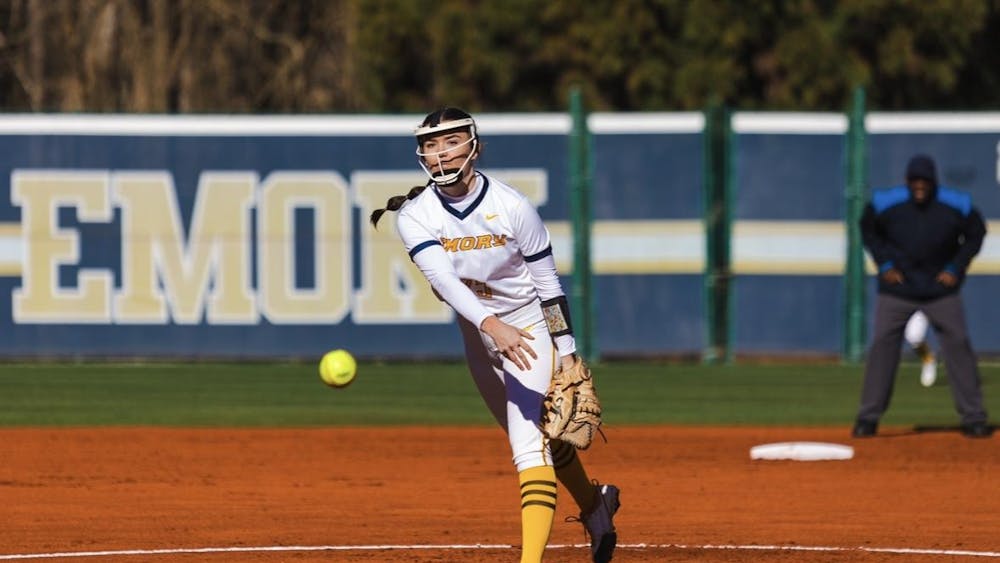As the novel coronavirus (COVID-19) spreads across the United States, the sports world has come to a complete standstill. The NBA, NHL, MLB and MLS — four of America’s major professional sports leagues — have all suspended, postponed or canceled their seasons in an effort to contain the spread of the disease.
The last major sporting event that was scheduled to be played as of March 12 was the annual NCAA Division I men’s basketball tournament, otherwise known as March Madness. After the cancellations of professional leagues and the withdrawal of top teams from the tournament, however, the NCAA announced the cancellation of both the Division I men’s and women’s 2020 basketball tournaments. NCAA President Mark Emmert and the NCAA Board of Governors announced the news in a statement on their website.
“This decision is based on the evolving COVID-19 public health threat, our ability to ensure the events do not contribute to the pandemic’s proliferation, and the impracticality of hosting such events at any time during this academic year given ongoing decisions by other entities,” the statement reads.
The Division II and Division III basketball tournaments were also canceled by the NCAA. Emory’s men’s basketball team would have been affected by such moves had they advanced to the third round.
March Madness has taken on a new meaning in the last few days. The buzzer-beaters and “Cinderella” runs that make March “mad” have been replaced by virus-induced fear and quarantine. The effects of the NCAA’s decision to cancel the tournament for the first time in the tournament’s 81-year existence will be severe to all parties involved.
According to Yahoo Finance, 75% of the NCAA’s $1 billion revenue during the 2016-17 school year came from the March Madness tournament alone. CBS Sports and Turner Broadcasting pay a whopping $770 million per year to broadcast the 63 games. Now that the games have been canceled, broadcasters are unable to make back some of the money from advertisers who spend north of $210 million combined for ad time. All of the arenas and stadiums that were scheduled to host games — including the Mercedes-Benz Stadium in Atlanta, which was scheduled to host the Final Four — will now host zero games. All of the merchandise and tickets will either go unsold or be refunded.
Within the last couple of years, sports betting has been legalized in 21 states, a list that continues to grow. Without March Madness, gamblers, sportsbooks and even fans will lose the opportunity to make significant cash. The American Gaming Association estimated that $8.5 billion are bet on the NCAA tournament by 47 million Americans. Bettors enter office pools and bracket challenges online and seek the perfect bracket, a tradition that will have to wait until next year.
Las Vegas typically becomes a popular tourist attraction during the first weekend of games, bringing in millions for betting and tourist industries. Travelers will now have to cancel their plans and stay home, and the city will suffer financially.
However, the damage goes way beyond the profit. Many players have worked their entire lives to play under the national spotlight. Many student-athletes depend on the tournament to give them the attention they normally don’t receive at smaller institutions.
Last season, Ja Morant rose through the ranks while playing at Murray State University (Ky.), a smaller school traditionally given little national attention. In the NCAA tournament, Morant led the Murray State Racers to an upset win over Marquette University (Wis.) in the first round and scored 28 points in their second-round loss. His tournament performance helped him rise on draft boards, and he was soon selected second in the 2019 NBA draft by the Memphis Grizzlies.
Without this opportunity, players like Morant lose the stage on which they can prove themselves. With less film that NBA scouts can observe, these small-school players will undoubtedly be viewed differently, or simply not at all. This can cause them to drop several picks in the draft, cost them millions of dollars and possibly even a roster spot.
Schools that earn bids from lower-tier conferences are severely impacted by the cancellation as well. When schools make the bracket, they receive television, radio and word-of-mouth references. This allows smaller schools to gain exposure from the media. For example, Florida Gulf Coast University (FGCU), a small school in Fort Myers, Fla., was seeded 15th in the 2013 NCAA Tournament. As underdogs, the FGCU Eagles advanced to the Sweet Sixteen after upsetting the second-seeded Georgetown University (D.C.) Hoyas and seventh-seeded San Diego State University (Calif.) Aztecs. The following fall, FGCU saw a 35.4% year-over-year spike in freshman applications.
FGCU’s success and application increase proves that tournament-related exposure benefits schools. Smaller schools like Bradley University (Ill.), which clinched a bid into this year's tournament, will now not get the national attention they would have had the tournament been played.
For many of these student-athletes, their dream is to play in the NCAA tournament. This dream has been shattered for those who will never get this opportunity again, either due to the uncertainty that their schools will reach the tournament next year, graduation or early entrance into the NBA draft.
While the cancellation of the NCAA tournament may seem like a massive blow to sports at the moment, it was a necessary step in preventing human-to-human interactions and containing the COVID-19 outbreak. After what happened on Wednesday night in Oklahoma City with Utah Jazz All-Stars Rudy Gobert and Donovan Mitchell both testing positive for COVID-19, no chances can, or should, be taken.
Unfortunately but necessarily, the bright lights of March Madness will be dimmed as the nation tries to slow the spread of the pandemic.







